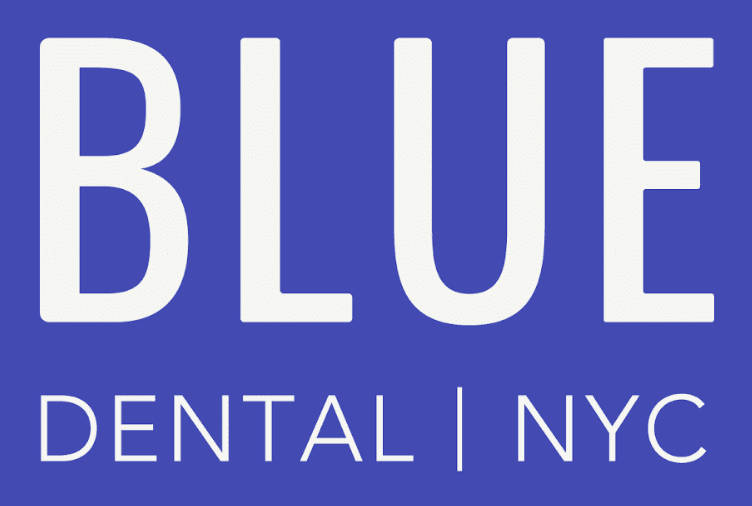TMJ Treatment
in Upper East, Manhattan
Jaw pain, clicking/popping, morning headaches, or tooth wear can all point to TMJ/TMD (temporomandibular joint disorder). At Blue Dental on the Upper East Side, we take a bite-first, conservative approach to relieve symptoms, protect teeth, and stabilize your jaw function.
Why choose us
- Bite-focused diagnostics: We assess joints, muscles, teeth wear, and habits—not just symptoms.
- Conservative first: Start with reversible therapies before considering permanent changes.
- Team care: We coordinate with physical therapists, ENT/oral surgery, or pain specialists when needed.
- Insurance-friendly: Benefits verified up front, clear estimates, and claims filed for you.
Common TMJ/TMD symptoms
- Jaw pain or tightness, especially on waking
- Clicking, popping, or grinding sounds
- Headaches, temple or ear-area aches
- Limited opening, jaw “locking,” or deviation on opening
- Tooth wear, fractures, or gum recession from clenching/grinding
- Neck/shoulder tension related to jaw strain
What causes TMJ/TMD?
Often a mix of factors: nighttime bruxism (clenching/grinding), stress, bite interferences, joint inflammation/arthritis, past trauma, posture, or hypermobility.
Your evaluation
- History & screening: Triggers, duration, stress/sleep, and prior treatments.
- Exam: Jaw range of motion, joint sounds, muscle tenderness, tooth wear, and bite contacts.
- Records (as needed): Photos, digital scans, and X-rays; CBCT or MRI when joint disease is suspected.
- Plan: We outline conservative options, timelines, and expected outcomes.
Treatment options (personalized)
- Custom night guard / occlusal splint: Reduces muscle load, protects teeth/restorations, and helps calm joints while you sleep.
- Habit & stress coaching: Daytime “lips together, teeth apart,” tongue posture, micro-breaks, and relaxation techniques.
- Medication guidance (with your physician): Short courses of anti-inflammatories or muscle relaxants when appropriate.
- Jaw exercises & PT coordination: Stretching, controlled openings, posture work, and manual therapy with trusted physical therapists.
- Selective bite adjustment (minimal): Smooths small high spots that trigger muscle guarding—only when clearly indicated.
- Short-term appliance options: Daytime de-programmers for acute flare-ups (case-dependent).
- Orthodontic or restorative planning: Considered after symptoms stabilize if true bite discrepancies remain.
- Referral when needed: Oral surgery, rheumatology, or pain medicine for arthritic/structural joint issues.
At-home relief tips
Warm compresses 10–15 minutes, soft foods during flares, avoid wide opening (big yawns, large sandwiches), limit gum chewing, and practice gentle jaw stretches we’ll demonstrate.
Timeline & expectations
Most patients notice improvement within 2–6 weeks with splint therapy + habits/PT; steady gains continue over several months. Our goal is fewer flare-ups, less pain, better function, and tooth protection.
When to seek urgent care
- Jaw locked closed or open
- Fever with facial swelling
- Significant trauma to the jaw
Call us—if medical attention is safer, we’ll direct you appropriately.
Cost & insurance
Coverage varies: night guards/splints are often partially covered by dental plans; PT/medications usually process through medical insurance. Advanced imaging or specialty referrals follow respective policies. We’ll verify benefits, provide clear written estimates, and submit claims on your behalf.
FAQs
Will a night guard cure TMJ?
It often
reduces muscle overuse and protects teeth, which can greatly relieve symptoms. Many patients do best with a combination of guard + habits + PT.
Do I need braces to fix TMJ?
Not usually. We reserve orthodontics for true bite discrepancies
after symptoms calm with conservative care.
What if my jaw clicks but doesn’t hurt?
Painless clicking can be monitored. We’ll protect teeth if you grind and teach habits to prevent progression.
Can Botox help?
Therapeutic injections for overactive jaw muscles can help select patients. We discuss risks/benefits and coordinate care when appropriate.
How long will I wear a splint?
Nightly during active treatment; many patients continue long-term for protection if they clench/grind.
Ready for relief?
Book a TMJ/TMD evaluation at our Upper East Side office. We’ll identify what’s driving your symptoms and create a conservative, step-by-step plan to ease pain, protect your teeth, and restore comfortable jaw function.
